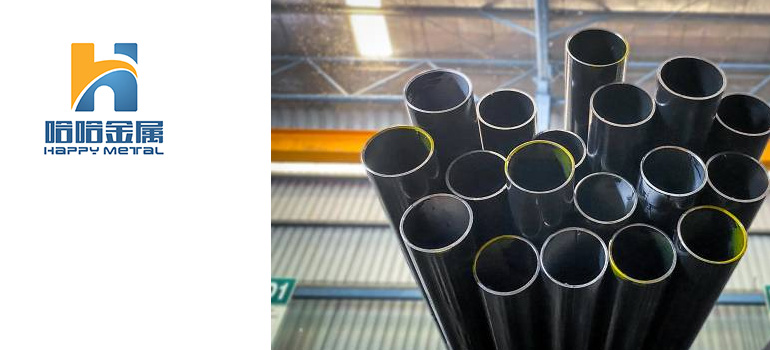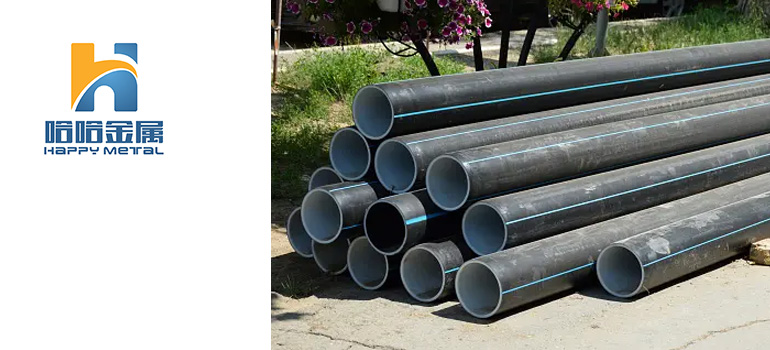Summary:
Essential Guide to Buying Carbon Steel Pipe for Sale
What is Carbon Steel Pipe?
Why Choose Carbon Steel?
Importance of Buying Carbon Steel Pipe for Sale
Factors to Consider When Buying Carbon Steel Pipe for Sale
Where to Buy Carbon Steel Pipe for Sale
What is Carbon Steel Pipe?
Carbon steel pipe is a type of steel pipe primarily made from carbon and iron, with small amounts of other elements added to enhance its properties. It is distinguished from other types of steel pipes by its carbon content, which typically ranges from 0.05% to 2.0%.
Key Characteristics of Carbon Steel Pipe:
Composition: Carbon steel pipes are predominantly made from carbon and iron. The carbon content gives the steel its characteristic strength and hardness.
Versatility: These pipes are highly versatile and used in various industries such as construction, oil and gas, manufacturing, and infrastructure.
Strength and Durability: Carbon steel pipes are known for their robustness and ability to withstand high pressures and temperatures. They are suitable for applications requiring high strength and resistance to mechanical stress.
Cost-Effectiveness: Carbon steel is relatively affordable compared to other materials, making it a cost-effective choice for many applications.
Weldability: Carbon steel pipes are generally easy to weld and fabricate, allowing for flexibility in design and installation.
Types of Carbon Steel Pipe:
Seamless Carbon Steel Pipe: Manufactured without any welding or seams, providing a smooth interior for unrestricted flow and better mechanical properties.
Welded Carbon Steel Pipe: Made by welding pieces of steel together to form a continuous, solid structure. Welded pipes are commonly used in construction and infrastructure projects.
Applications of Carbon Steel Pipe:
Transportation of fluids: Used for transporting liquids and gases in industries such as oil and gas, water treatment, and chemical processing.
Structural Uses: In building construction and infrastructure projects, such as in scaffolding, support structures, and frames.
Industrial Machinery: Components and structures requiring high strength and durability, such as in manufacturing equipment and machinery.
In summary, carbon steel pipe is a durable and versatile material essential for various industries due to its strength, cost-effectiveness, and suitability for high-pressure and high-temperature applications.
Why Choose Carbon Steel?
There are several compelling reasons why carbon steel is chosen over other materials in various applications:
Strength and Durability:
Carbon steel is renowned for its strength and durability. It offers high tensile strength and can withstand significant mechanical stress, making it suitable for applications requiring robust materials. This strength is crucial in industries such as construction, manufacturing, and infrastructure.
Cost-Effectiveness:
One of the primary reasons for choosing carbon steel is its affordability. Compared to many other materials with similar strength characteristics, carbon steel tends to be more cost-effective. This makes it an attractive choice for projects where budget constraints are a consideration.
Versatility:
Carbon steel is highly versatile and can be used in a wide range of applications across various industries. It is suitable for manufacturing pipes, structural components, machinery parts, and more. Its versatility extends to both large-scale industrial applications and smaller, intricate components.
Ease of Fabrication:
Carbon steel is relatively easy to work with and can be fabricated into desired shapes, sizes, and configurations. It can be welded, formed, machined, and processed using conventional methods, which enhances its usability in manufacturing and construction.
Resistance to Corrosion:
While not as corrosion-resistant as stainless steel or other specialized alloys, carbon steel still offers moderate resistance to corrosion. This resistance can be further enhanced through protective coatings and treatments, making it suitable for many outdoor and industrial applications.
Recyclability:
Carbon steel is highly recyclable, which contributes to sustainability efforts and reduces environmental impact. Scrap carbon steel can be recycled and reused in the production of new steel products, promoting resource efficiency.
Availability:
Carbon steel is widely available and produced in large quantities globally. This availability ensures a reliable supply chain for industries that depend on consistent material procurement.
In summary, the choice of carbon steel is driven by its combination of strength, durability, affordability, versatility, ease of fabrication, moderate corrosion resistance, recyclability, and widespread availability. These factors make carbon steel a preferred material across a broad spectrum of industrial and commercial applications.
Importance of Buying Carbon Steel Pipe for Sale

Buying carbon steel pipe for sale is important for several reasons, particularly for industries and projects that require reliable and robust piping solutions. Here are key points highlighting the importance:
Cost-Effectiveness:
Carbon steel pipes are generally more affordable compared to pipes made from other materials such as stainless steel or alloys. This cost-effectiveness is advantageous for budget-conscious projects without compromising on quality and durability.
Strength and Durability:
Carbon steel pipes offer high tensile strength and durability, making them suitable for handling high-pressure applications and harsh environmental conditions. They are resistant to mechanical stress and can withstand fluctuations in temperature and pressure, ensuring long-term reliability.
Versatility in Applications:
These pipes are versatile and find applications across various industries including oil and gas, construction, manufacturing, water treatment, and more. They are used for transporting liquids, gases, and solids, as well as for structural support in buildings and infrastructure projects.
Availability and Accessibility:
Carbon steel pipes are widely available from numerous suppliers and distributors globally. Their availability ensures that industries have access to the necessary piping materials promptly, facilitating timely project completion and maintenance.
Ease of Maintenance:
Maintaining carbon steel pipes is relatively straightforward. They are resistant to wear and corrosion to a certain extent, and any necessary repairs or maintenance procedures are generally cost-effective and straightforward compared to more specialized materials.
Compatibility with Welding and Fabrication:
Carbon steel pipes can be easily welded and fabricated into various shapes and sizes to meet specific project requirements. This flexibility in fabrication allows for customized solutions and efficient installation processes.
Environmental and Recyclable Benefits:
Carbon steel is a recyclable material, contributing to sustainability efforts and reducing environmental impact. Recycled steel can be used in the production of new pipes, promoting resource conservation and reducing overall carbon footprint.
Compliance with Industry Standards:
Purchasing carbon steel pipes from reputable suppliers ensures compliance with industry standards and regulations. This guarantees that the pipes meet required specifications for safety, performance, and durability in specific applications.
In conclusion, buying carbon steel pipes for sale is important due to their cost-effectiveness, strength, durability, versatility, availability, ease of maintenance, recyclability, and compliance with industry standards. These factors collectively contribute to their widespread use in critical industrial and infrastructure projects worldwide.
Factors to Consider When Buying Carbon Steel Pipe for Sale
When purchasing carbon steel pipe for sale, several key factors should be considered to ensure you select the right product for your specific needs. Here are important factors to keep in mind:
Size and Specifications
Nominal Pipe Size (NPS): Determine the diameter size needed for your application.
Wall Thickness: Consider the required thickness based on pressure and mechanical requirements.
Length: Specify the length of pipes needed, which can affect transportation and installation logistics.
Quality Standards and Certifications
ASTM Standards: Ensure the pipes meet relevant ASTM specifications such as ASTM A106 for seamless pipes or ASTM A53 for welded pipes.
API Certification: If applicable, ensure the pipes meet API standards (e.g., API 5L) for specific applications like oil and gas transportation.
Material Grade: Verify the carbon steel grade (e.g., ASTM A333 Grade 6) based on required mechanical properties and environmental conditions.
Pricing and Budget Considerations
Cost per Meter: Compare prices from different suppliers based on size, grade, and quantity required.
Total Project Cost: Factor in costs for transportation, handling, and any additional services or accessories needed.
Supplier Reputation and Reliability
Supplier Experience: Choose suppliers with a proven track record in delivering quality carbon steel pipes.
Customer Reviews and References: Check testimonials and references to gauge customer satisfaction and service reliability.
Application Specific Requirements
End Use: Consider the specific application requirements such as fluid transportation, structural support, or high-temperature service.
Environmental Conditions: Evaluate factors like corrosion resistance and temperature tolerance required for the environment in which the pipes will operate.
Inspection and Testing
Material Inspection: Ensure the pipes undergo appropriate testing and inspection procedures to verify quality and compliance with standards.
Certificates: Request material test certificates (MTCs) and other documentation to validate the quality and properties of the pipes.
Considering these factors when buying carbon steel pipe for sale will help you make informed decisions and ensure that the chosen pipes meet your project requirements effectively and efficiently.
Where to Buy Carbon Steel Pipe for Sale
When looking to purchase carbon steel pipe for sale, there are several reliable sources and options to consider, both online and offline. Here are some key places where you can buy carbon steel pipe:
Online Suppliers and Marketplaces
Manufacturer Websites: Many carbon steel pipe manufacturers sell directly through their websites, offering a wide range of products with detailed specifications.
Online Industrial Suppliers: Websites specializing in industrial supplies often carry a variety of carbon steel pipes, providing options for different grades, sizes, and specifications.
Marketplaces: Platforms like Alibaba, Amazon Business, or specialized industrial marketplaces offer listings from multiple suppliers, allowing for price comparison and product selection.
Local Suppliers and Distributors
Steel Service Centers: Local steel service centers and distributors stock and sell carbon steel pipes, offering proximity, quick availability, and sometimes custom cutting services.
Industrial Suppliers: Local suppliers catering to industries such as construction, manufacturing, and oil and gas often carry a range of carbon steel pipes to meet specific project needs.
Trade Shows and Industry Events
Trade Shows: Industry-specific trade shows and exhibitions often feature numerous suppliers showcasing their products, providing opportunities to compare offerings and network with suppliers.
Conferences and Seminars: Events related to construction, manufacturing, and oil and gas industries may include exhibitions where carbon steel pipe suppliers exhibit their products.
Direct from Manufacturers
Direct Orders: Contacting carbon steel pipe manufacturers directly allows for customized orders, detailed product inquiries, and potentially better pricing for bulk purchases.
Factory Outlets: Some manufacturers have factory outlets or sales offices where customers can purchase pipes directly, often at competitive prices.
Auctions and Surplus Sales
Auctions: Surplus or liquidation auctions may offer opportunities to purchase carbon steel pipes at discounted prices, though availability and conditions may vary.
Surplus Sales: Some industrial suppliers and distributors occasionally offer surplus or excess inventory sales, providing cost-effective options for purchasing pipes.
Choosing the right source depends on factors such as budget, project timeline, specific requirements (like size and grade), and the reliability of the supplier. Evaluating multiple options ensures you find the best match for your needs when buying carbon steel pipe for sale.




